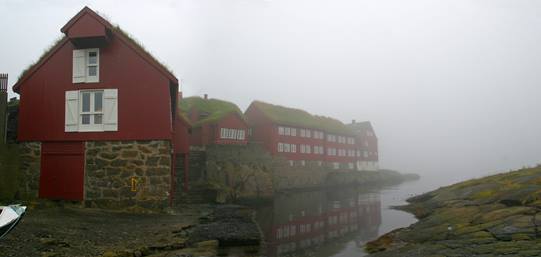Political System
Since 1948 the Faroe Islands have constituted a self-governing country, under the Kingdom of Denmark.
The country’s political system is a multi-party system, with the Faroese Prime Minister heading the “landsstýri” (government). Members of the Faroese Parliament (Løgting) are democratically elected to serve four-year terms.
There are seven districts where parliamentary elects may run and the landsstýri will therefore generally comprise of 7 members, while there are 33 available seats in the parliament. Following elections the leader of the party which received the majority of votes, is usually appointed prime minister (løgmaður) by the Danish Queen.
The framework is a form of parliamentary representative democratic dependency with part of the administrative and legislative domains falling under the Danish government’s authority and part of them under Special Faroese Affairs belonging to Faroese home rule.
The Faroe islands can choose to assume responsibility of all fields apart from the Constitution; nationality; the Supreme Court; foreign, defence and security policy; as well as exchange rate and monetary policy in accordance with Takeover Act of 2005. The fields of responsibility, not taken over by the Faroese authorities, fall within the jurisdiction of the central authorities of the Realm (Danish Government and Folketing). The Faroese authorities decide the time at which fields of responsibility are taken over.
Despite being part of the Kingdom of Denmark, the Faroe Islands have a great amount of autonomy and are independent in regards to Customs and Excise, Taxation and Administration. Additionally there is the atypical construction that the Faroe Islands are not an EU member while Denmark is.
To read more about the political system on the Faroe Islands, visit: https://visitfaroeislands.com/en/about1/history-governance-economy/government-politics0

